Astana's balance of power: Aru, Nibali and Landa all take aim at the Vuelta a España
Giuseppe Martinelli on the dynamics of the Kazakhstani team
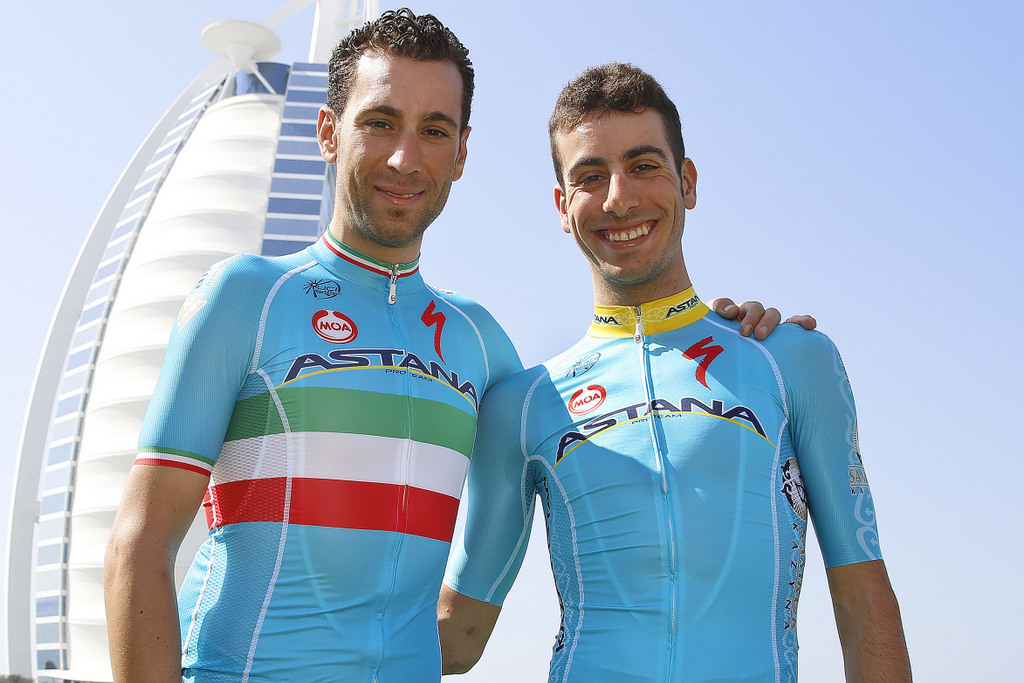
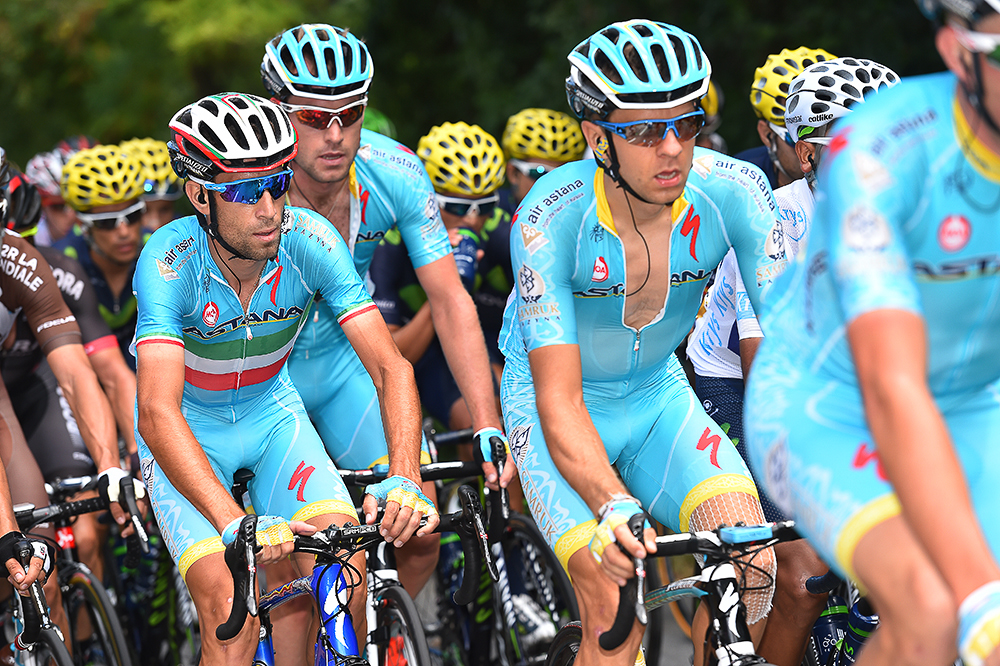
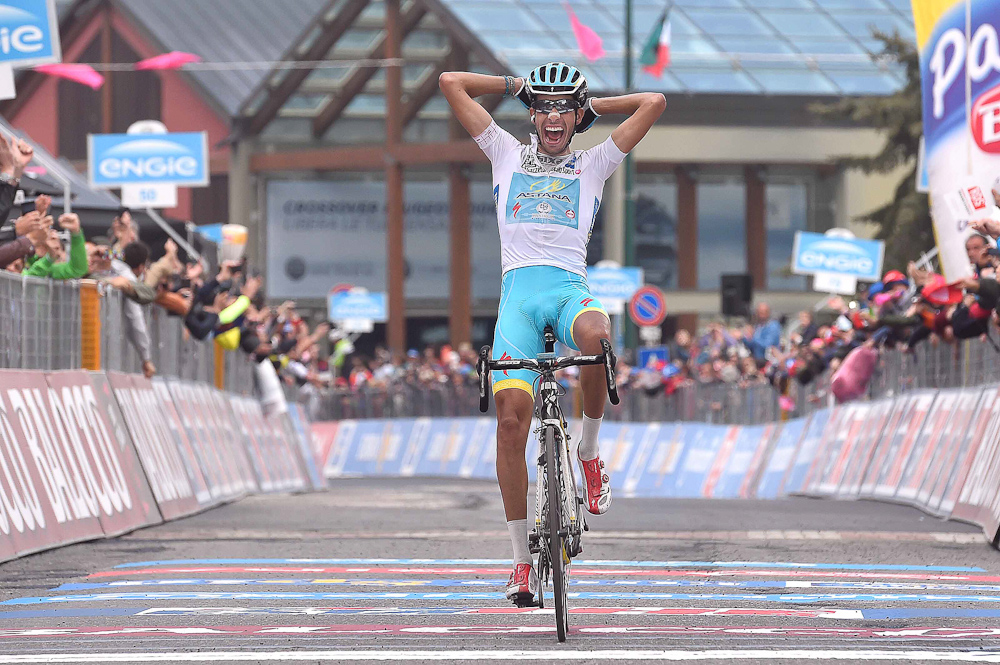
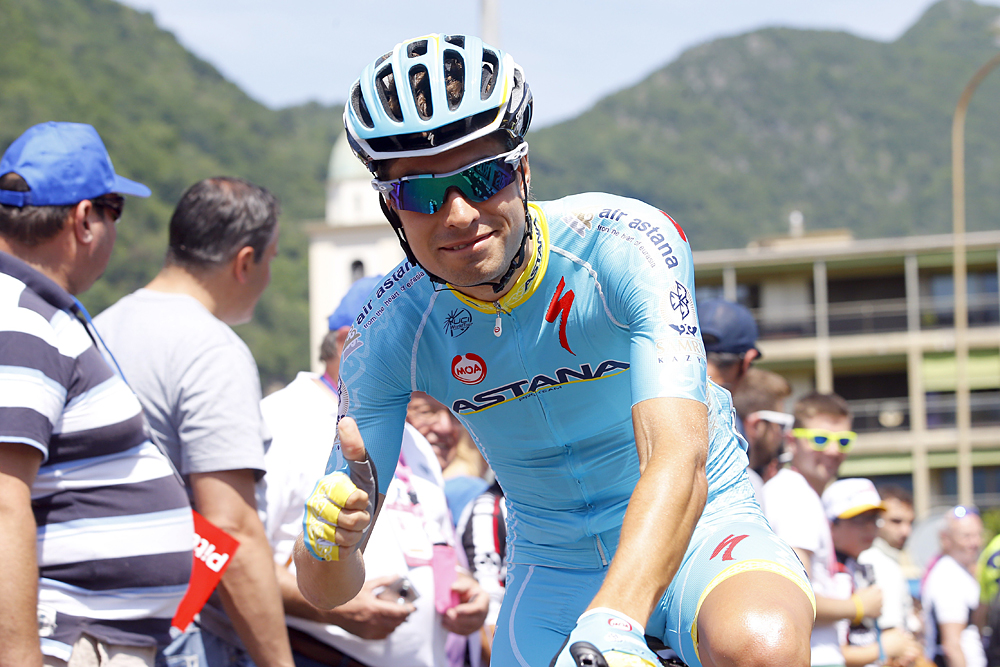
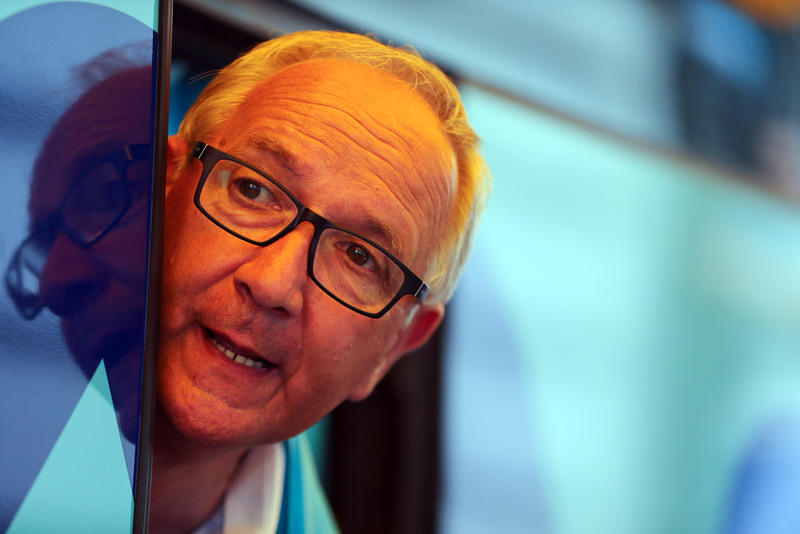
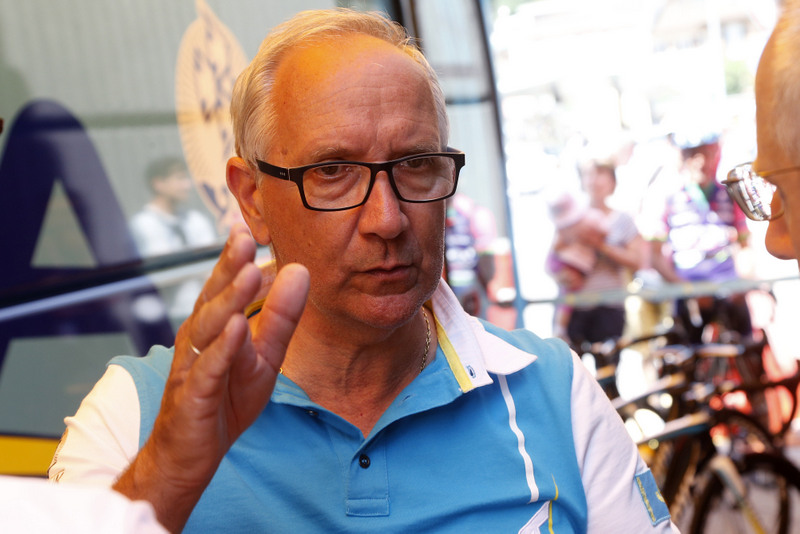
Giuseppe Martinelli has previous when it comes to managing an internecine rivalry. He was at the helm at Saeco at the 2004 Giro d'Italia, after all, when the tensions between Damiano Cunego and Gilberto Simoni erupted into all-out conflict, and while Simoni's cry of "bastardo ignorante" is the lasting image of that race for many, it can't be overlooked that Cunego ultimately carried the pink jersey safely to Milan.
For the past two seasons at Astana, be it by accident or design, Martinelli has offset the potential for such enmity between Vincenzo Nibali and Fabio Aru by handing them entirely separate racing programmes. Although both men are contracted to Astana, they have been effectively riding for different teams: save for a joint appearance in Italian colours at the Ponferrada World Championships, Nibali and Aru haven't raced together since the Tour of Lombardy at the tail end of 2013.
In the intervening period, Nibali has won a Tour de France and Aru has singled himself out as the coming man of Italian cycling with back-to-back podium finishes at the Giro d'Italia. But their paths have scarcely crossed. Astana's stable of stage-racing talent, too, has separated quietly into two distinct clusters; an Italian group, led by Paolo Tiralongo, has built up around Aru, while Nibali has increasingly been surrounded by foreign talent, such as Jakob Fuglsang and Lars Boom.
At this year's Vuelta a España Nibali and Aru will finally race side by side in a Grand Tour, their first time to do so since Aru was the greenhorn among the Astana guard that helped Nibali win the 2013 Giro d'Italia. With Mikel Landa, third at this year's Giro, also in the line-up, Astana have no fewer than three potential winners of the Vuelta at their disposal.
Martinelli has stopped short of naming an outright leader before the race but it is clear that a hierarchy exists.
"I don't like starting without having clear ideas, and Vincenzo and Fabio are the leading lights of this team. As for Landa, he'll have to put himself at their service, certainly at the start," Martinelli told Cyclingnews in an exclusive interview.
Landa said earlier this week that he is targeting a stage win and a high overall finish at the Vuelta, and Martinelli maintains that such personal ambition does not contradict his supporting role. Albeit with seemingly increasing reluctance as the race drew on, Landa by and large obeyed team orders at the Giro and still claimed two stage wins and a place on the podium in the process.
The latest race content, interviews, features, reviews and expert buying guides, direct to your inbox!
"Winning a stage and being a protagonist on GC is within his capabilities, but you certainly can't go there with three riders for GC and say 'let the road decide who the leader is,'" Martinelli said. "I think Landa is intelligent enough to realise that he has two important riders in front of him at this point in time."
Given that Landa had already confirmed that he will leave the team at the end of the season – Team Sky is his likely destination – some wondered whether the Basque would simply be omitted altogether from the Vuelta line-up, but after falling short of at both the Giro and the Tour, general manager Alexandre Vinokourov decreed that the strongest available squad be assembled for the Vuelta.
"We were already thinking about this strategy at the Tour de France. We wanted to leave a mark on a Grand Tour this year and the Vuelta was a good chance to fight for the win, so why not go there with the strongest team we have?" Martinelli suggested. "And Landa is definitely one of the strongest riders we have."
Martinelli on Nibali
Landa, of course, has been part of the so-called "Aru group" all season long and, like the Sardinian, he skipped the Tour de France in order to prepare specifically for the Vuelta. Nibali, by contrast, is the man who has been shoehorned into Astana's Vuelta plans following a difficult July, where his hopes of a repeat victory faded on the first day in the mountains, yet he ended the race on a defiant note by winning the stage to La Toussuire and taking fourth place overall in Paris.
In light of Vinokourov's particular brand of motivation – he was forthright in his criticism of Nibali's display in the Pyrenees at the Tour, for instance – sending the Sicilian to the Vuelta has the feel of a form of punishment, but Martinelli insisted that Nibali travels to Spain of his own volition.
"He thought about it himself, and decided that the best thing to do was to ride the Vuelta. As a manager I hope that Vincenzo rides this Vuelta with three things in mind – to be a protagonist, to help Fabio to win the race, and to treat this as a new start, the start of the 2016 season," Martinelli said.
That final point is salient, as one element common to the winners of the past five Tours is that they all raced the Vuelta the preceding autumn. When it comes to the vexed question of Astana leadership at the Vuelta, meanwhile, Nibali knows from personal experience that it is a stage race that favours fresher legs. In 2013, he was denied the Giro-Vuelta double by a remarkably spritely Chris Horner, who had barely raced all season.
"The important thing will be clarity between the two of them and I think that I've got two very intelligent riders on my hands in that sense," Martinelli said. "Fabio is the future, but you could almost say that he's the present too. Vincenzo is already a champion, and he's coming to the Vuelta because he wants to come to the Vuelta."
Martinelli on Aru
History would certainly seem to tip the scales in Aru's favour at the Vuelta Of the 20 editions of the Spanish Grand Tour that have taken place since the race switched to its current Autumn date, only five have been won by riders who had completed the Tour beforehand. In the WorldTour era, the only rider to finish the Tour and win the Vuelta in the same year was Denis Menchov (or Roberto Heras, according to the Spanish Supreme Court) in 2005.
"The big champions like [Nairo] Quintana, [Alejandro] Valverde and [Chris] Froome have the Tour in their legs, whereas Fabio doesn't, so to be perfectly honest, that's a bit of an advantage for us alright," Martinelli admitted. "He might have a bit more freshness and that could be evident in the third week – even though, at this year's Vuelta, the third week is actually a bit easier than normal, and I think the first and second weeks are going to be more decisive."
Rivarly engrained in Italian pysche
Last winter, even as a spate of doping cases threatened the very future of the Astana team, a sizeable portion of column inches in Italy – UCI Licence Commission seemingly be damned – were instead devoted to discussing in minute detail how Aru and Nibali might divide up the stage racing calendar between them in 2015. Proof, as if it were needed, of how deeply the rivalry between Fausto Coppi and Gino Bartali, and other riders of every generation since then, is engrained in the psyche of Italian cycling.
BiciSport magazine even ran a 30-page reportage on the pair's unspoken internecine rivalry, with the primary flashpoint uncovered appeared to be that Aru had once set off on a training camp ride without Nibali when the Sicilian was five minutes late in reporting to the hotel car park. Ultimately, the younger man tends to win the favour of his management in such situations because promise and potential are more exciting that post-success decline. Team Sky's championing of Froome over Bradley Wiggins after the 2012 Tour de France was simply the latest high-profile example. It's worth noting that while Nibali's Astana contract expires at the end of next season, Aru will be on hand through 2017.
At this juncture, however, Martinelli will not be seen to play favourites.
"From my point of view, I'll set off with one rider who has prepared specifically for the Vuelta as one of the big targets of his season, and another rider, a great champion, who is coming to the Vuelta for all of the reasons I've outlined above," Martinelli said. "I've got two champions to manage and my obligation is to get the best result possible, without leaving anything to chance. The problem certainly isn't the riders I have on my team; it's the rivals we'll have to beat, guys like Froome, Quintana and Valverde."
Indeed, though the Vuelta is traditionally the most open of Grand Tour stage races – who could have predicted Juan José Cobo or Chris Horner's wins, or, for that matter, Froome's emergence in 2011? – it would be a surprise if the winner didn't emerge from one of three teams: Team Sky, Movistar and Astana.
Froome can rely on Geraint Thomas and Sergio Henao for support, Valverde and Quintana are accompanied by Andrey Amador, fourth at the Giro d'Italia. Yet, at least on paper, Astana appear to have the deepest roster in the race, particularly if Tiralongo, Dario Cataldo and Diego Rosa manage to repeat the kind of startling displays they produced at in May, when, somehow, the Kazakhstani squad seemed to be spend every day of the Giro massed at the front.
"Froome rarely gets it wrong when he goes to a stage race, as he's shown over the past three years. For Valverde, this has probably been his most consistent year, and Quintana was the only one who put Froome in difficulty, so it's normal that the press talks about them as favourites," Martinelli said.
"But we've got two inventive riders in Fabio and Vincenzo, and a very strong team in Astana, who can turn the situation on its head. I think that could be the leitmotif of this Vuelta."
To subscribe to the Cyclingnews video channel, please click here.

Barry Ryan was Head of Features at Cyclingnews. He has covered professional cycling since 2010, reporting from the Tour de France, Giro d’Italia and events from Argentina to Japan. His writing has appeared in The Independent, Procycling and Cycling Plus. He is the author of The Ascent: Sean Kelly, Stephen Roche and the Rise of Irish Cycling’s Golden Generation, published by Gill Books.